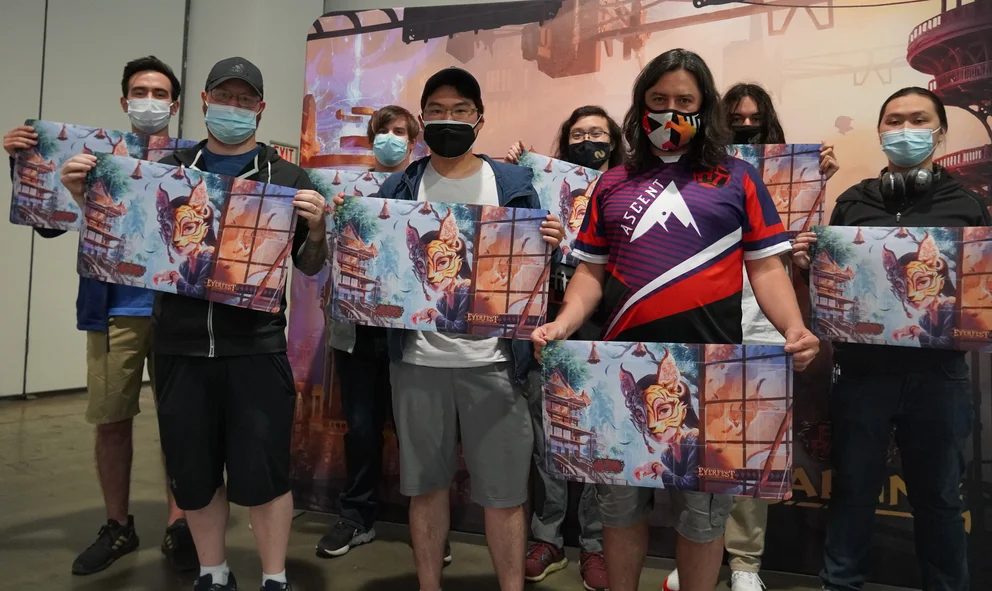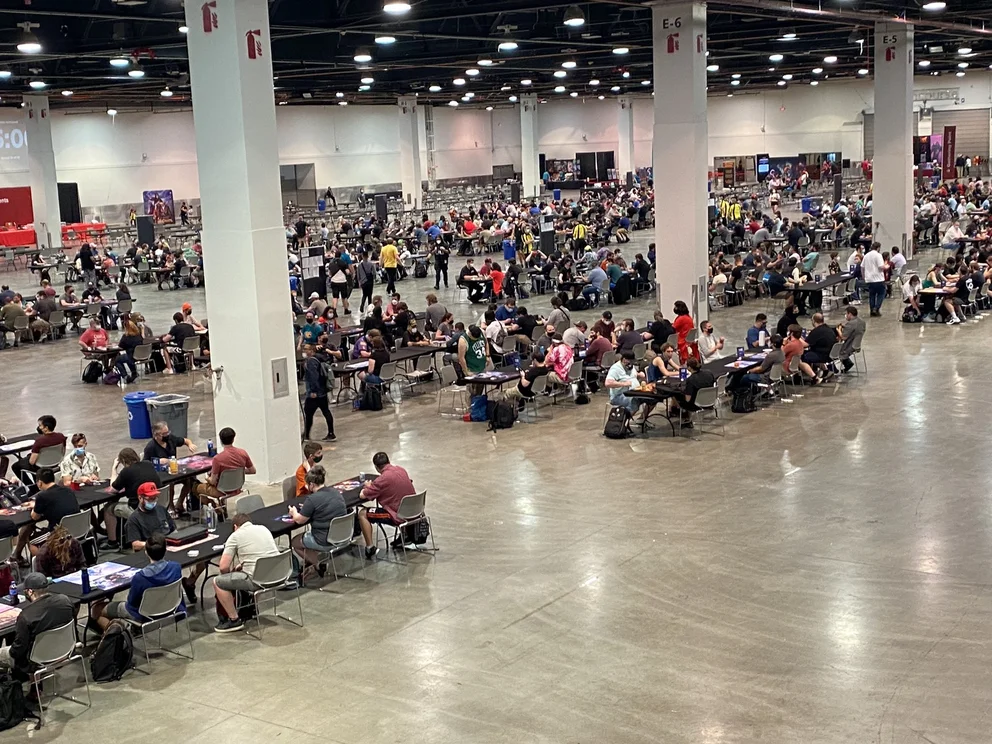Christopher Ray is a competitive player in the US who won the Battle Hardened event at the Las Vegas Uprising World Premiere event, whose background also includes Top 8 finishes at Calling: Cincinnati and Battle Hardened: Pittsburgh. Today he joins us as a guest writer to discuss how to balance competitive play with everyday life, whether you're a student, professional, or parent.
Today, we examine the player’s drive to play Flesh and Blood and how that might impact his/her work, life, and hobby balance. Do you watch the clock until work is over, or until that college professor dismisses the class? Are you bursting at the seams, ready to chat with other players on their latest deck ideas, or theory craft with your teammates? Many of us players are college students, parents, partners, and/or full-time workers. This might be your passion and outlet to escape the stresses of everyday life, but you can’t let it consume you.
I’ve been personally playing the game since right after Crucible of War released. I’ve put in countless hours browsing FaB resources, chatting in public forums, and practicing with other players. I’ve admittedly neglected some responsibilities, friends, and optional work functions over the past year and a half due to my sometimes-unhealthy obsession with this amazing game that we all love. It’s important to do a self-awareness check sometimes and make sure we aren’t letting other areas of our lives suffer while we chase the next tournament win.
When do the external responsibilities pull us down so that we feel guilty for enjoying the game? If we are not careful, we can lose the balance of our outlet. Maybe your parents, partners, co-workers, friends, or children lack understanding as to why you play this game. Without their support, the hobby creates tension in our lives. How do we show attention and maintain friendships while also taking our passion seriously? Let us explore these questions together.
Try sitting your partner down and explaining how Flesh and Blood provides mental challenge, comradery, friendships, and healthy competition. Its overall atmosphere leads to an exhilarating experience. If they know your reasoning for the game, like it is your stress-relieving tool, then they will be more accepting. Discussing travel dates for tournaments and planning a budget beforehand help you get on the same page with others. Missing important work functions, exams, anniversaries, birthdays, or children’s events could cause friction, so plan and prioritize with care.

For example, let us look at the past year. The FaB seasons have been back-to-back. ProQuest season went almost directly into the Road to Nationals season. RTN went directly into the Skirmish season. Pro Tours and Callings were mixed into the calendar as well. How many of us feel like we are missing out by not going to an event? We do not want to miss an opportunity to win! To maintain a high percentage of event attendance means we stay busy. We are away from our jobs or families. Let us not forget how this strains us financially as well. The solution rests on our priorities and realizing that the ample opportunities to play worldwide are an advantage, not disadvantage. We can carefully balance and select the tournaments that make the most sense with our finances and other life events.
It has been proven that taking vacations reduces work burnout. What is a ProTour to me? Not only is it an opportunity to test myself against the best players in the world, but it’s a mini-vacation to recharge! Bringing a partner along can add to the fun. Play in the tournament during the day, and then explore the town at night! That is where I try to find a win-win balance. When my wife started joining me on trips, it reduced my stress and gave me encouragement for the tournaments. Our latest trip to Lille, France was amazing, and we made it a dual-purpose trip. I would play and we would also explore the beautiful culture and architecture around France as a second honeymoon.
Back to our day-to-day lives, burnout can be reduced by taking control of work hours. Leaving work on time to make it to in-person events keeps me accountable. As long as I engage in my hobby during designated times, I feel an inner balance. As with any passion, our problems arise when they consume our every waking thought. Playing games online during the workday is great, but only during my short, regulated breaks. The second I play too much, I feel it in my gut and I realize I need to take a small step back to bring things inline.
Make to-do lists, stop procrastinating, and take time off. Time management skills and compartmentalizing my various roles as father, husband, sales manager, and Flesh and Blood player, have helped me find balance. Try to leave your work at work, find time for yourself and your family or friends, and learn to say “no” to overcommitment. Wasting our energy on too much social media time has been linked to increased stress and less time to accomplish what really matters.

What really matters to you? To find balance, reflect on your priorities, make a list of them, and see how many hours you are dedicating to your priorities. If you value exercise but you have spent only 30 minutes this week exercising, then you are out of balance. If you want to place within the Top 8 of the next tournament but you have clocked zero hours of practice nor researched the latest meta, you are out of balance. If you laid down in bed next to your significant other and you were still chatting with friends about deck choices until midnight, you were out of balance. If you missed work because you wanted to sleep in after a late night of play testing, you were out of balance.
Make sure you are not neglecting all the other long-term aspects of your life, like your education, job, and relationships, because they are what is left after we complete this season of gaming life. It is okay to be hardcore, but it is also a good idea to take breaks and reconnect with the other parts of our lives.
Christopher Ray is a competitive Flesh and Blood player and author of content relating to gameplay and strategy. The opinions expressed in the above article are his own and do not necessarily reflect the views of Legend Story Studios.